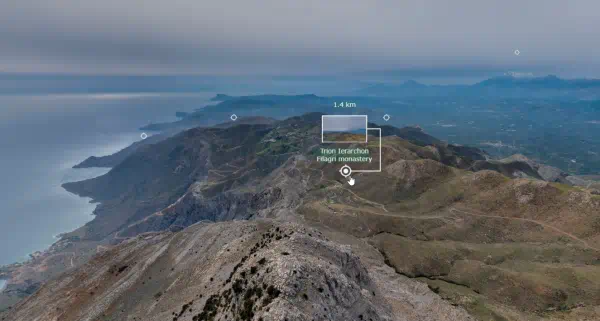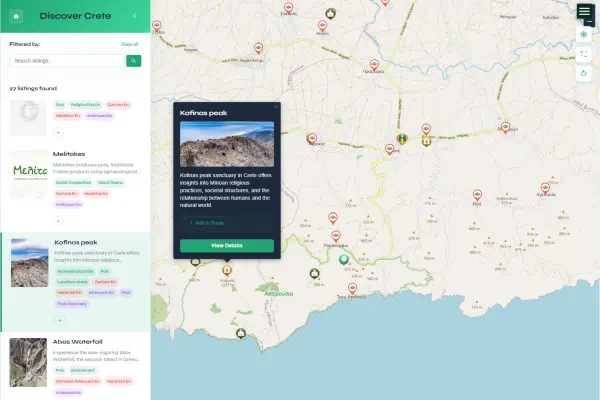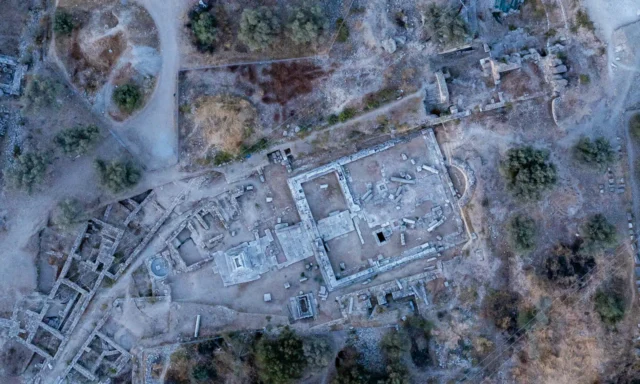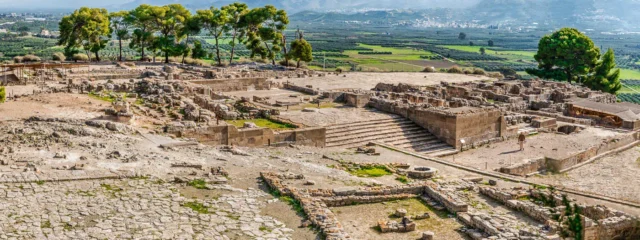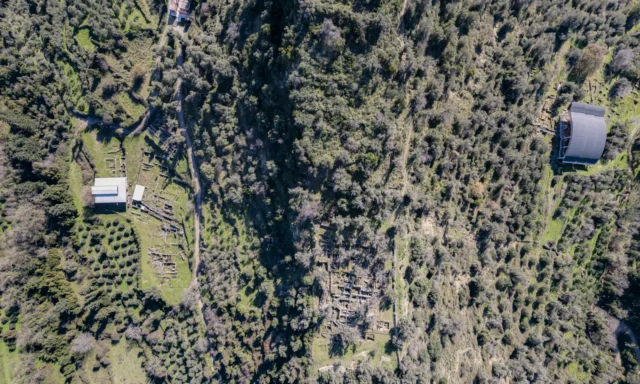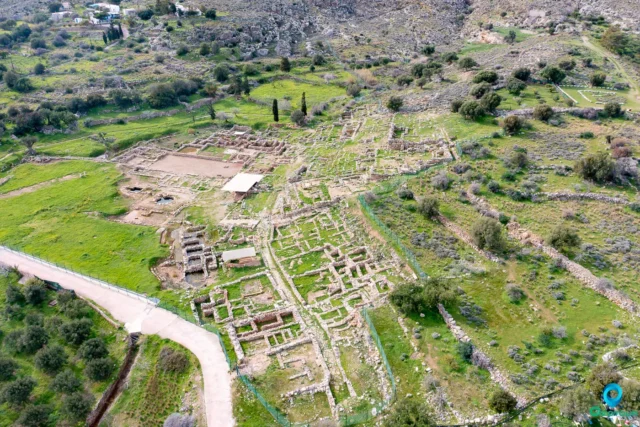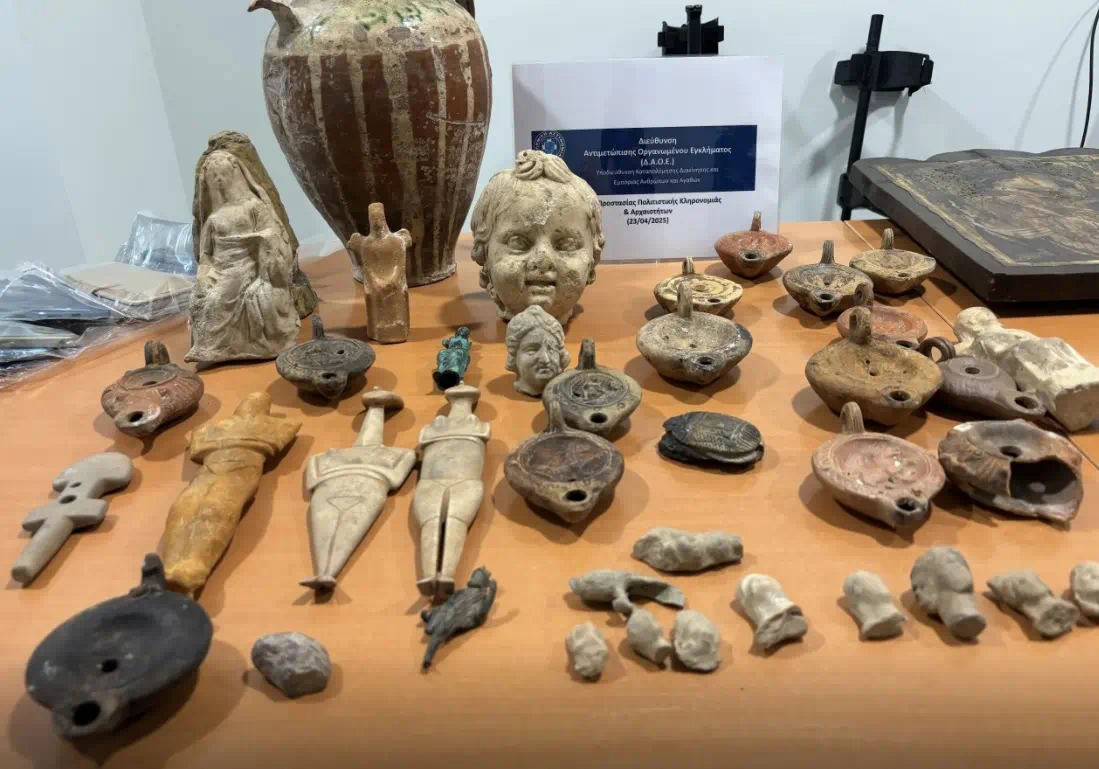HERAKLION, Crete – (April 24, 2025) – In a significant operation striking at the heart of illicit cultural heritage trafficking, the Hellenic Police (ELAS) have dismantled a major antiquity smuggling ring operating on the island of Crete. Six individuals were arrested on Wednesday, April 23rd, including, in a move that has sent ripples through the local community, a 58-year-old director of a public service agency based in Heraklion, and a well-known figure in the city.
The arrests followed a meticulously planned operation spearheaded by the Directorate for Combating Organized Crime, with officers travelling from Athens to collaborate with local Cretan police units. The operation culminated in the seizure of a substantial cache of antiquities, some potentially dating back millennia, alongside illegal firearms, narcotics, and sophisticated detection equipment used for locating buried artifacts. Initial estimates place the value of the recovered antiquities at over €3 million.
The Operation and Arrests
Acting on carefully cultivated intelligence, the Sub-Directorate for Combating Trafficking in Human Beings and Goods established that the suspects were involved in the long-term possession and attempted sale of illegally acquired antiquities. The police investigation successfully mapped out the structure and roles within the criminal organization.
Sources indicate the group operated with a clear hierarchy:
- One member allegedly directed the activities of the others.
- Specific members were tasked with acting as sellers and safeguarding the locations where the artifacts were stored. One such location was reportedly a rented house in Heraklion, used explicitly as a storage facility and a potential showroom for prospective buyers. Another cache was discovered hidden in a house in the village of Atsipades Monofatsiou.
- Another individual acted as an intermediary, actively seeking out potential buyers for the priceless items.
- A sixth member was responsible for the crucial task of transporting the artifacts to predetermined meeting points for illicit transactions.
The arrests were carried out during a “special covert operational action,” suggesting a possible sting operation. The suspects were apprehended as they allegedly attempted to sell at least 46 artifacts during a pre-arranged meeting. The police presence was significant, with reports mentioning 25 to 30 officers involved, a precaution taken due to intelligence suggesting that members of the ring might be armed. Indeed, one suspect was reportedly found carrying a weapon upon arrest, while another had attempted to hide within the Atsipades house where artifacts were stored before being discovered by officers.
Of the six individuals arrested, five are from Crete (four reportedly from Heraklion and one from Rethymno), while the sixth originates from Chalkida, indicating the network’s reach beyond the island. All suspects are expected to be brought before the Heraklion prosecutor to face charges.
A Trove of Stolen History Seized
The sheer variety and number of items confiscated during searches of the suspects’ persons and residences underscore the scale of the operation. The haul includes:
- Ancient Pottery and Figurines: 15 ancient oil lamps (λυχνάρια), 17 diverse figurines and fragments thereof (potentially including valuable Cycladic idols mentioned in reports), 3 various ancient vases and fragments, and a large storage jar (pithos).
- Metal and Stone Artifacts: A metal double axe (πέλεκυς), a metal cochliarion (a type of spoon or small ladle), 5 various stone objects or fragments, and significantly, a marble head described as belonging to a child statue.
- Religious Item: An icon depicting the Virgin Mary holding the infant Jesus (Παναγίας Βρεφοκρατούσας).
- Weapons and Ammunition: A functional pistol with its magazine, a non-functional revolver, 17 live cartridges, and 95 blank cartridges.
- Narcotics: A package containing 14 grams of unprocessed cannabis.
- Illicit Excavation/Detection Equipment: A water metal detector, three other detection machines/devices, three metal detector coils/discs, two pairs of dowsing rods, and a dowsing system.
- Other Evidence: 6 mobile phones, 2 recording devices, a scanner machine, €3,030 in cash, and 3 vehicles believed to have been used for transporting the antiquities.
Furthermore, the investigation has prompted a related inquiry extending beyond Crete. With the assistance of the Rhodes Crime Prosecution and Investigation Sub-Directorate, a separate case file was opened against another individual in Rhodes after a revolver was discovered and seized at their residence during searches linked to the main operation.
The competent Ephorate of Antiquities, the regional body responsible for overseeing archaeological heritage, has examined the seized artifacts. According to the official police statement, the Ephorate confirmed that the vast majority of the recovered items fall under the strict provisions of Greek legislation for the protection of antiquities and cultural heritage. This confirms their status as protected historical objects illegally possessed and trafficked by the suspects.
The Scourge of Αntiquities trafficking: An Attack on Common Wealth
This significant bust serves as a stark reminder of the ongoing threat posed by Αntiquities trafficking. This is not merely a crime against property; it is a profound offense against collective memory, cultural identity, and the shared heritage of Greece and the world. Crete, the cradle of the Minoan civilization and an island steeped in millennia of history, is particularly vulnerable to such activities due to the richness of its archaeological landscape.
Each looted artifact, ripped from its archaeological context without scientific documentation, represents an irretrievable loss of knowledge. These objects are not simply decorative items or investment commodities; they are tangible links to the past, carriers of historical narratives, and vital pieces of the human story. When illegally excavated and smuggled, their context is destroyed, rendering them almost mute, unable to fully tell the stories they hold about the societies that created them.
The involvement of a public official in this alleged ring is particularly disconcerting, highlighting the insidious nature of this crime and its potential to corrupt societal structures. It underscores the crucial need for unwavering integrity within public service and constant vigilance against those who would exploit positions of trust for personal gain at the expense of the nation’s heritage.
The Hellenic Republic views antiquities trafficking with the utmost seriousness. Greek law imposes strict penalties on those involved in the illegal excavation, possession, and trafficking of antiquities. These laws reflect a deep-seated national commitment to safeguarding the invaluable relics of Greece’s long and influential history. The artifacts recovered in operations like this belong in museums, accessible to the public and researchers, not hidden away in private collections or traded on the black market.
A Call for Vigilance and Respect
This successful operation by the Hellenic Police is a testament to their dedication to combating organized crime and protecting Greece’s cultural treasures. It sends a clear message that authorities are actively working to dismantle networks that seek to profit from the nation’s past.
However, the fight against antiquity smuggling requires more than just law enforcement action. It demands a societal commitment to respecting and protecting our common wealth. Public awareness and vigilance are crucial. Communities must understand the value of the heritage that lies beneath their feet and report any suspicious activity related to illegal digging or artifact trading.
The temptation to view ancient objects merely in terms of monetary value must be resisted. Their true worth lies in their historical and cultural significance, a value that belongs to everyone. The strict handling of this case, and the prosecution of those involved to the full extent of the law, will be essential in reinforcing the message that is a grave crime against Greece’s identity and future, and it will not be tolerated. The investigation continues, and further announcements from the authorities are anticipated as the case progresses towards the courts.

